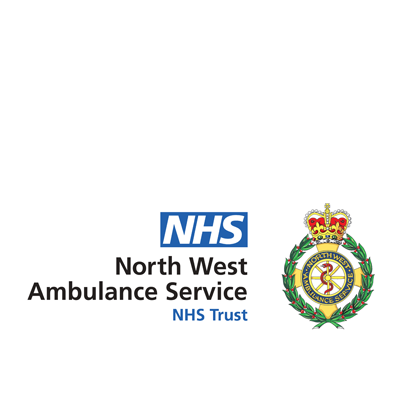
Themes
- Whole-system productivity
- Mitigating patient harm
- Right care, right place
North West Ambulance Service NHS Trust (NWAS) provides the region’s emergency ambulance service, receiving approximately 1.7 million 999 calls and attending over one million emergency incidents each year. NWAS also delivers the NHS 111 service for the region, handling around 1.7 million calls each year, and assisting with more than 1.3 million patient transport journeys. The trust serves a population of over seven million people and employs more than 7,000 staff across Cumbria, Lancashire, Greater Manchester, Merseyside, Cheshire and Glossop.
Improving whole-system productivity by offering video consultations across NHS 111 services
In early 2020, NWAS worked closely with NHS Digital on a small-scale trial which looked to offer video consultations to patients contacting the trust's NHS 111 service. Following the success of the trial, NWAS decided to continue and extend the offer across the clinical workforce and factored them into the initial training of clinicians across the service. Implementing and embedding new working practices can often be challenging, particularly around new technology. To assist with the roll-out of the programme and kickstart the cultural change to embed the technology into typical working practices, the trust appointed a number of clinical champions and trainers. The champions have acted as strong advocates of video consultations and the benefits they bring to patients and helped to promote the adoption of the technology across the trust.
Feedback from patients has been overwhelmingly positive, with patients reporting they felt better taken care of and received an additional level of reassurance that a clinician had 'seen' and heard their concerns. The evaluation carried out by the trust to evidence the impact of the programme highlights that patients who have been triaged using video consultations tend to receive the right level of care sooner. Video consultations give clinicians the ability to recognise when escalation of care is required, enabling them to identify and manage patient risk more effectively.
The evaluation work carried out by NWAS shows the impact of video consultation triage on whole-system productivity. Using the example of paediatric rash outcomes, patients who have been triaged via video consultations are less likely to be diverted to urgent and emergency care pathways. Patients who were triaged using video consultation were 14% more likely to continue their treatment at home than patients who were triaged without video consultations. The productivity benefit of this initiative is quite clear. From a clinical perspective, patients get to the right level of care sooner than they would have done without video consultations, taking pressure off the wider health system through reduced hospital admissions, inefficient referral pathways and timelier diagnosis of conditions.
Implementing local measures to escalate care and mitigate patient harm
Over the course of 2022 and 2023, the trust saw 16 serious mental-health related incidents, with a high number being where patients had taken an intentional overdose, and several incidents where unfortunately patients had died or come to significant harm. Where a patient or member of the public would contact 999 or 111 in the event of an overdose, they would go through the NHS Pathways triage system which would typically elicit a Category 3 response – which NWAS aims to respond to 90% of the time within two hours as per the Ambulance Response Programme. In a typical triage process, the call handler would request information regarding what medication had been taken, how much was taken and when was this taken. In order to mitigate the harm and risk to patients, the trust recognised it needed to implement a local measure in order to ensure that patients who had potentially overdosed on high-risk medications could access care much faster.
Working with the trust's internal pharmacy team and using evidence from recent coronial inquests, the team at NWAS pulled together a list of 20 high-risk drugs that were commonly seen in overdose incidents. The trust then implemented an advanced questionnaire module into its triage process which would prompt the call handler to ask if the patient had taken any drugs on the high-risk drugs list. If the patient had identified any of the drugs or medication on the list, the incident would be upgraded to elicit a Category 2 response – which would be responded to in an average time of 18 minutes. Additionally, patients who identified as having taken a high-risk drug would receive a clinical review to determine the level of risk to the patient.
Since implementing the initiative in November 2023, the advanced questionnaire has been used over 4,400 times and over 1,700 calls were upgraded from a Category 3 to a Category 2 response. Patients are being seen quicker and clinicians now spend less time on scene and are conveying patients to hospitals faster. The initiative has had a transformative effect on reducing risk to patients in the area with there being a significant reduction in serious incidents relating to overdoses and an improvement in safety for vulnerable patients across the region. In terms of the impact on productivity, this has provided significant benefits to the wider system, with reduced hospital admissions in overdose-related incidents, improved health outcomes for patients and patients being treated upstream and directed to appropriate support from system partners.
Reflections
Both examples from NWAS highlight the importance of adopting a whole-system view of improving productivity. Initiatives which may not provide immediate benefits to the individual trust's organisational productivity will still likely make a significant difference to the productivity of the wider health system and lead to better outcomes for patients. The two represent excellent examples of why trusts are best placed to identify local measures to deliver productivity gains across the health system and ensure patients receive the best care possible.